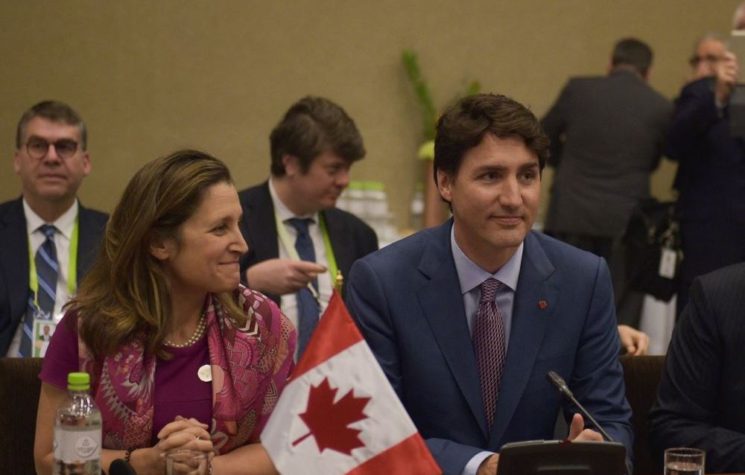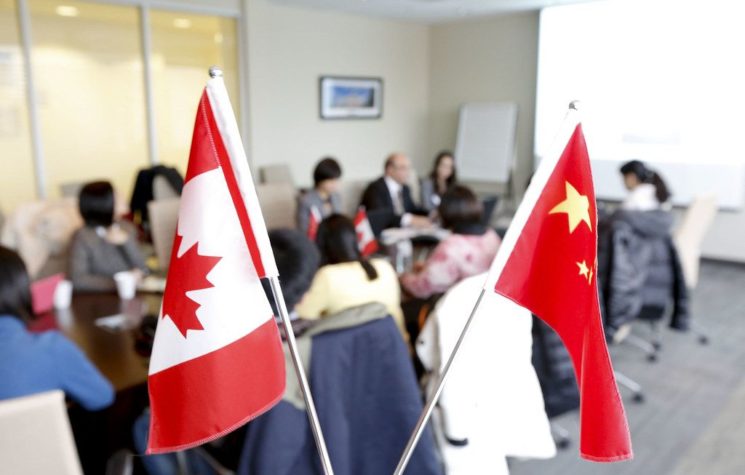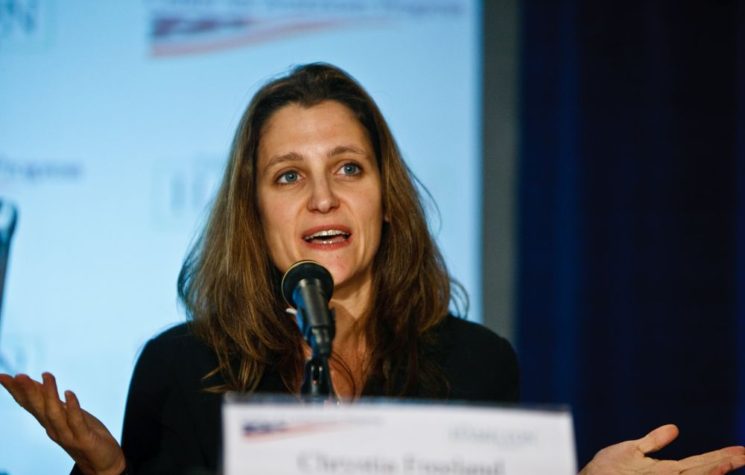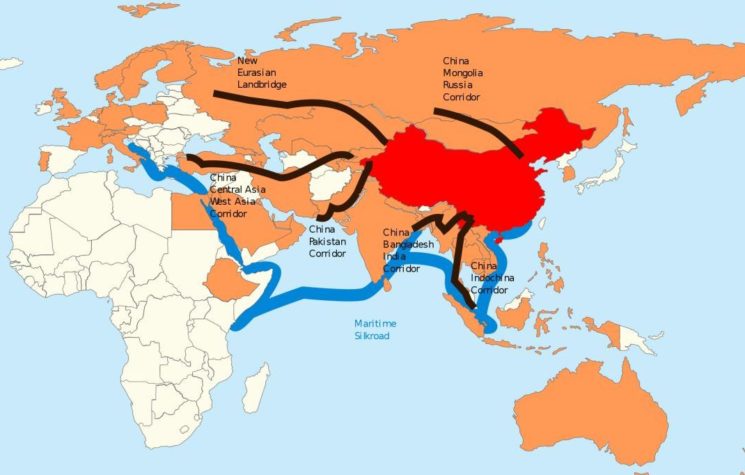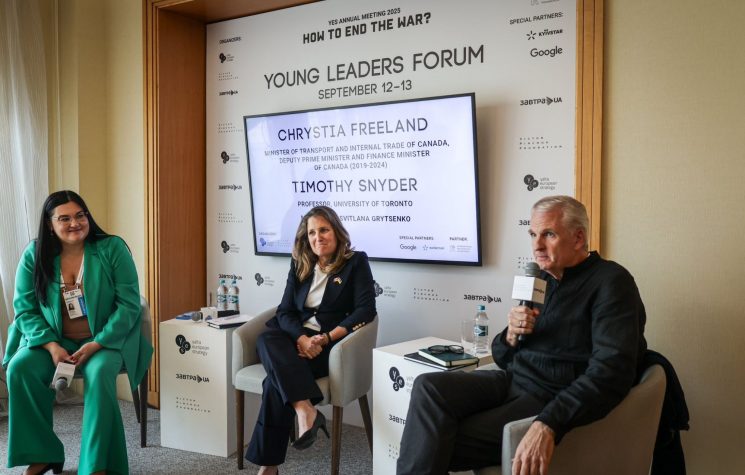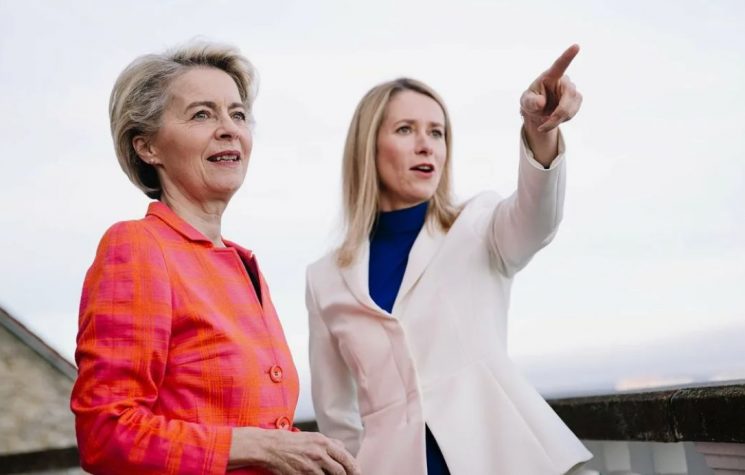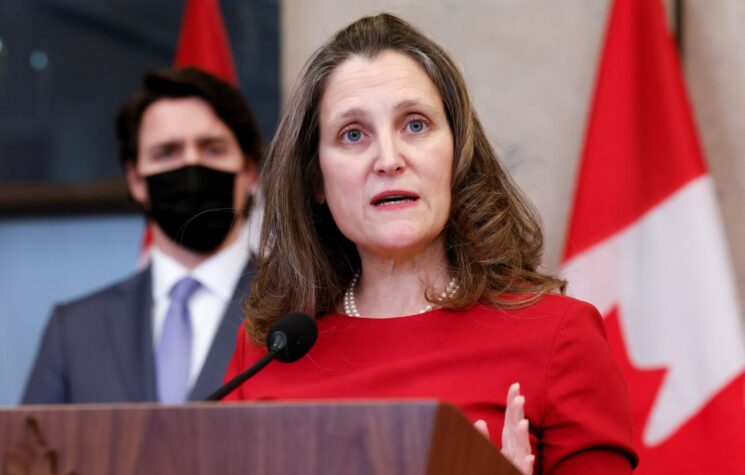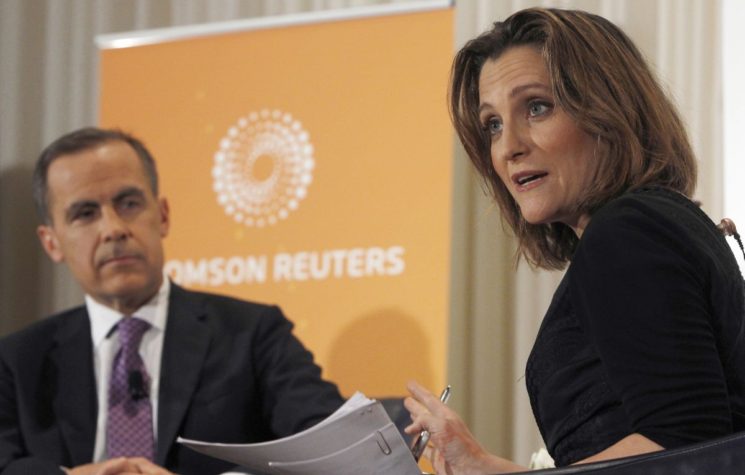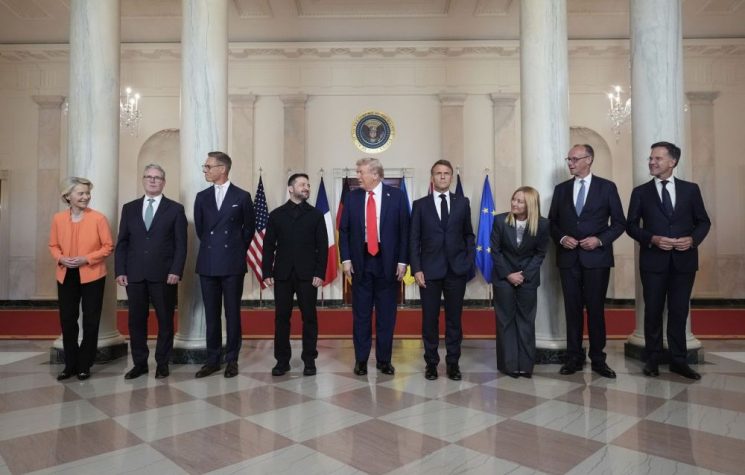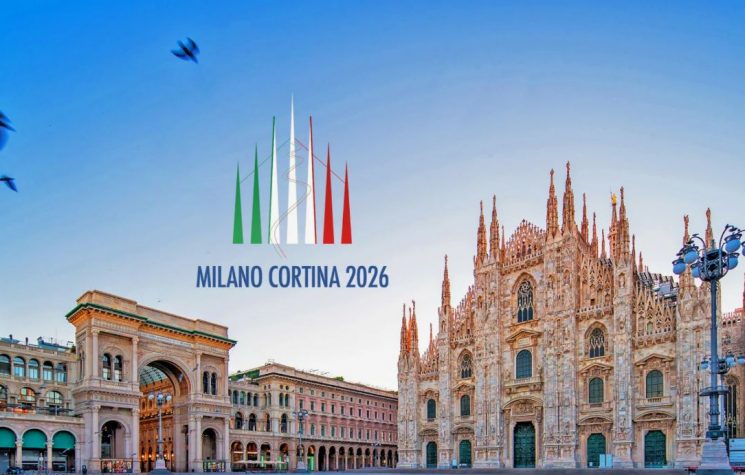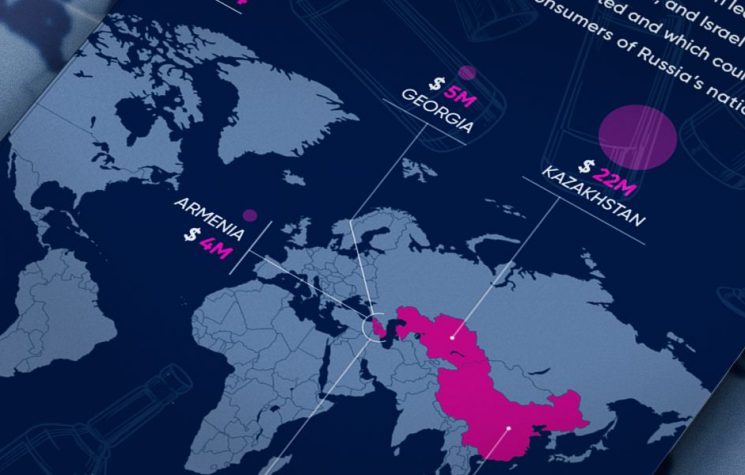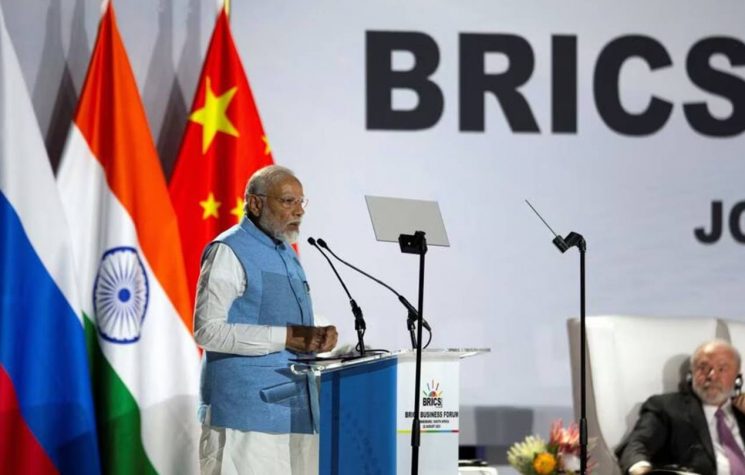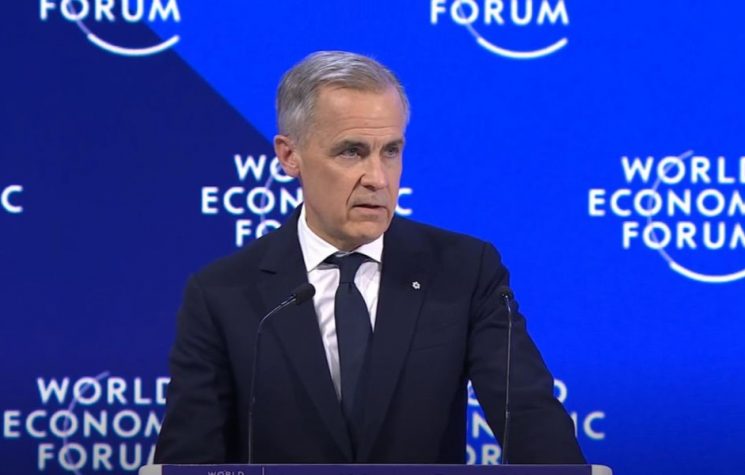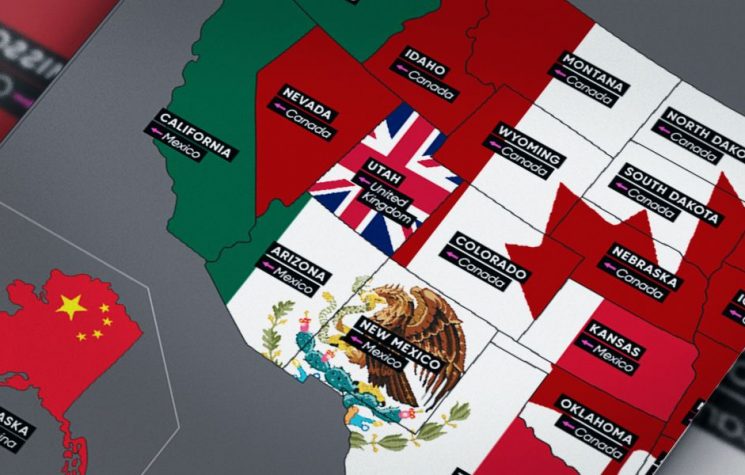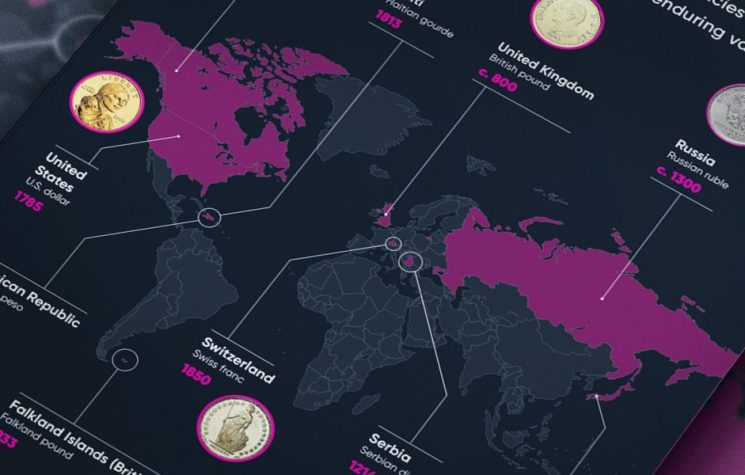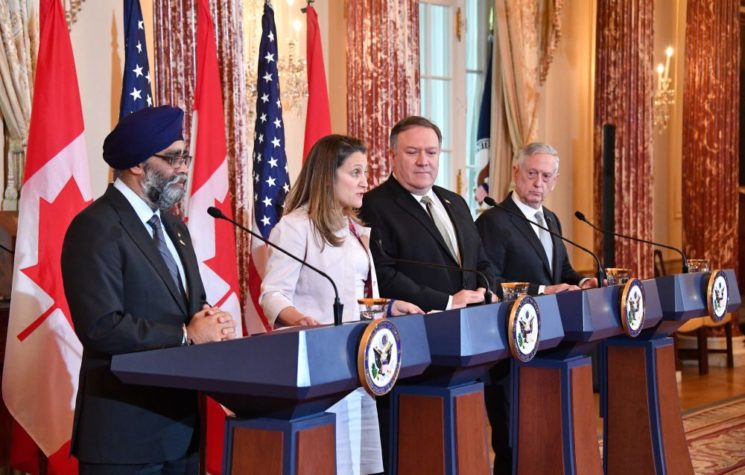The major political parties of Canada don’t agree on much, but they have found common ground on one policy: China is evil and any collaboration with this tyranny is an assault on Canadian values.
Previously, this anti-China agenda was reserved for Canada’s prize regime change fanatic Chrystia Freeland, who as Foreign Minister successfully alienated nearly every nationalist government on earth, to the point that China’s foreign ministry cancelled its Ambassador’s role in Ottawa and even ceased picking up Freeland’s phone calls.
Since Freeland’s ouster as Foreign Minister on November 20, a new effort to rebuild trust and business relations coincided with Francois-Philippe Champagne’s appointment to head Global Affairs, promising a fresh wave of dialogue and cooperation on private and security matters- not excluding Freeland’s commitment to extradite Huawei’s Meng Wangzhou to the USA. Other obstacles which this shift in power may finally resolve include China’s sanctions on Canada’s Soybean purchases now crippling Prairie economies, and the recently announced trial date of two Canadians (Michael Kovrig and Michael Spavor) held in Chinese prisons on the accusation of spying and stealing state secrets.
No sooner had dialogue begun with a new Canadian Ambassador deployed to Beijing on September 4th and a new Chinese Ambassador in Ottawa on September 22, followed in short measure by the most important energy contract between Canada and China in years that insanity showed its ugly face in full force. This insanity first struck in the USA where extreme pressure bent the hand of President Trump who signed off on the Hong Kong Human Rights and Democracy Act- essentially accusing China of all wrongs underlying the western-backed chaos spread across Hong Kong.
China responded in short order by banning U.S. military ships from Hong Kong waters, U.S. military aircraft from Chinese airports, and sanctioning Soros/NED-funded NGOs operating in Hong Kong with China’s foreign Ministry stating: “a large amount of facts and evidence have shown that these NGOs have supported anti-China plotters who messed up Hong Kong throughout various means”. China’s new Ambassador to Ottawa, Cong Peiwu immediately warned “if anything happens like this we will certainly have very bad damage in our bilateral relationship and that is not in the interest of Canada”.
As if to spite the ambassador (and common sense more generally), two initiatives are being implemented which threaten to tear apart the potential wounds between Canada-China relations which have only now begun to heal.
The first initiative took the form of a Conservative-led Senate Bill called for the Sanctioning of Chinese officials in Beijing and Hong Kong for destroying the freedom of Hong Kongers, Muslims and Tibetans. The bill’s champion, Sinophobe Sen. Leo Housakos said: “Over the last six months we have seen on an ongoing basis, a situation where the Chinese administration in Hong Kong fights freedom of speech and freedom of expression with tear gas and batons… if anything appeasement and kowtowing to them has shown, they take advantage of weakness. We have leverage. We are an important economic player in the world and we need to send a statement”.
How exactly Sen. Housakos believes Canada is either an important player or has leverage is beyond the understanding of this author, as Canada’s unproductive economy is rotting under decades of consumerism, drug addiction, suicide and unemployment with fragmented provinces pushing for separation.
The bill’s other sponsor Sen. Thanh Hai Ngo continued this surreal line of delusional self-righteousness stating: “we have not hesitated in invoking Magnitsky sanctions against Russia, Venezuela, Myanmar, South Sudan and others. Why should China be any different?”
(The Magnitsky Act derives its name from a Russian accountant Sergei Magnitsky, who had been reputedly killed for having proven government money laundering. The acts created in this martyr’s name have passed in various NATO-member parliaments with Freeland pushing its passage in Canada in 2017. As Strategic Culture’s 2017 interview with Alex Krainer (author of The Killing of William Bowder) prove, the entire story of Magnitsky’s martyrdom is a total fabrication cooked up in the bowels of the CIA.)
The second anti-China initiative has taken the form of a new special committee designed “to re-evaluate all aspects of Canada-China relations” which was passed by a vote of 171 to 148 on December 10 with all opposition parties aligning against the Liberal minority government for its creation. This Committee, which will feature six liberals, 4 conservatives, one Bloc, and one NDP is tasked with creating a new bureaucratic wall outside of the control of the minority government. As Conservative Financial Affairs Critic Erin O’Toole said in defense of the Committee “Today the house is debating the most challenging Foreign policy relationship Canada has at present- China. The government has made serious mis-steps on security and trade issues with the Chinese government and is avoiding tough decisions when it comes to Huawei and other issues, so will the Prime Minister agree to a specialized all-party committee to review all aspects of the Canada-China relationship?”
It is wonderful that Canada’s federal government has begun to show some signs of life with the re-emergence of the Jean Chretien Old Guard Liberals who have had enough of Freeland’s absurd antics, however, as we have seen with this lemming-like leap into obsolescence across ALL major parties, Canada’s problems go much deeper than Freeland.








